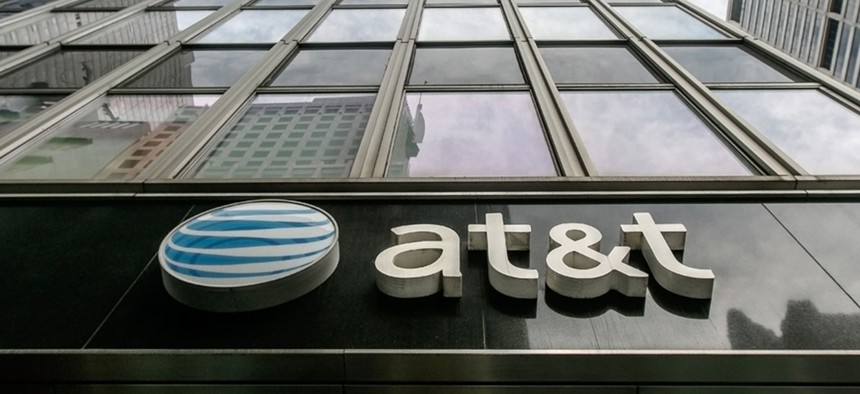
Roman Tiraspolsky/Shutterstock.com
How the Trump Administration's Suit to Block a Media Merger Could Hurt the Tech Industry
The lawsuit may pit AT&T and Time Warner against the Justice Department. But it's Silicon Valley that might suffer the most.
The Justice Department announced on Monday that it will sue to block AT&T’s acquisition of Time Warner, pitting the Trump administration against a media business that has turned to mergers to compete with the rise of tech giants like Facebook and Netflix. The $108 billion deal, which would be one of the largest mergers in American history, had been in the works for more than a year.
Both Democrats and Republicans have historically approved of these so-called “vertical mergers” between companies operating at different levels of a particular industry. Time Warner, which owns HBO, TNT, and TBS, is mostly in the pure content business, while AT&T, which sells phone and internet access and owns DirecTV, is largely in the media-distribution business. Mergers between such media and distribution companies have rarely faced much scrutiny. For example, the Obama administration approved a similar merger between Comcast and NBCUniversal in 2011.
So, that is the mystery of this lawsuit: By what standard would the department approve that deal, but deny the AT&T merger with Time Warner?
There are two starkly different explanations for the Justice Department’s motives. The first is that a merger between two powerful media companies deserves to be blocked, since it provides an obvious temptation for anticompetitive practices. The Justice Department has argued that AT&T could raise the price for rivals to distribute HBO and other Time Warner content and choke off innovation in video and technology. In a New York Times op-ed, Tim Wu, a Columbia Law School professor and antitrust author, wrote that “the department seems right to worry” about the merger.
But the second explanation, which leans heavily on controversial claims that first appeared in the Financial Times, argues that the Justice Department is acting purely on President Donald Trump’s behalf to punish CNN, which is owned by Time Warner, for its negative coverage of his administration. While this claim is mostly speculative, it is far from illusory. The president has publicly advocated forusing the department to destroy his rivals, such as Hillary Clinton, in the past.
The main reason this lawsuit seems suspicious, though, is that it would appear quite out of character for the Trump administration, which has hailed the need for deregulation. Thus far, the administration has cast itself outwardly pro-business and has done little to indicate that it wants to become an antitrust warrior. Meanwhile, the president’s only other push for the use of antitrust legislation was in his threat to investigate Amazon, whose founder, Jeff Bezos, independently owns The Washington Post, which published negative stories about him.
But Makan Delrahim, the head of antitrust at DOJ, made a clear case for this lawsuit in a speech before the America Bar Association last Thursday. He said his department approved the Comcast merger only by requiring that the company be subject to strict oversight to prevent anticompetitive practices. Delrahim sharply criticized that deal for increasing the need for regulation and forcing the DOJ to babysit Comcast to ensure that it doesn’t make decisions that are, paradoxically, in its own profit-maximizing interest. To simply block such vertical mergers in the first place would eliminate the need for regulation while allowing companies to seek profit without interference from the government.
There is a clean logic at work here. But the lawsuit itself could get messy. Trump’s tweets have already derailed his immigration policy. In the discovery process for the suit, lawyers may identity further Trump quotes targeting CNN, making it harder for the DOJ to argue that the suit isn’t politically motivated.
Other observers think that the lawsuit’s biggest losers may be tech giants, like Facebook and Google. To defend their merger, AT&T and Time Warner will likely argue that their union is necessary to counteract the emerging advertising and content monopolies coming out of Silicon Valley. In other words, the most persuasive case for the creation of new quasi-monopolistic media behemoths is that Facebook, Google, Amazon, and Netflix have so much market power already that mergers are necessary to compete with them. If the argument succeeds in court, it could encourage the Justice Department to turn its focus toward Silicon Valley.
This lawsuit will pit AT&T and Time Warner against the Justice Department. But it may be Big Tech on trial.






